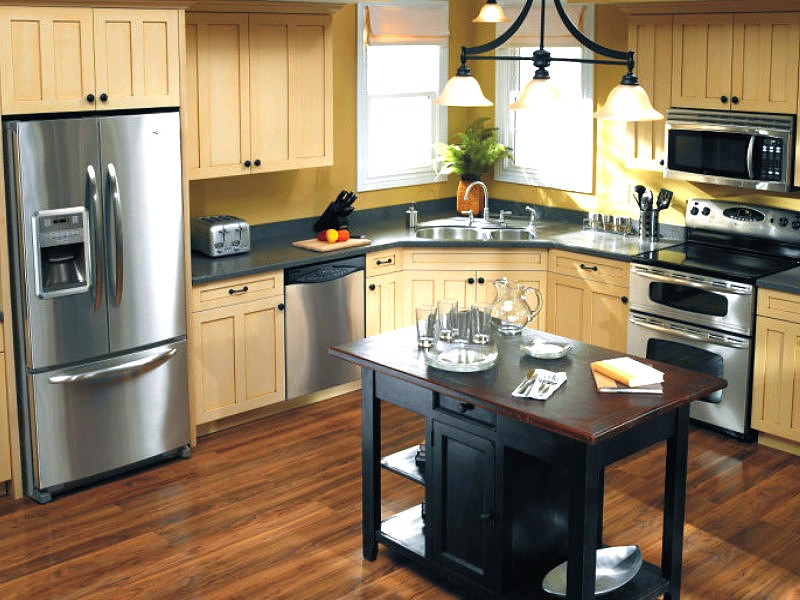In many cases, homeowners do not have appliance insurance, and do not even realize that such an home insurance option exists. When we buy our household appliances, they usually come with manufacturer warranties. As consumers, we think of these warranties as security against our investment. But warranties only last so long, and often cover very little.
It is important to explore the concept of appliance insurance and to get to know this financial protection product so you can make an informed decision on whether to carry a policy and how to structure it for your own protection. Take a look at these three tips on appliance insurance to help you decide whether to take advantage of this type of financial product, and to find the best possible value on an insurance policy to suit your needs.
Understand the Importance of Appliance Insurance
Consumers who are considering adding appliance insurance to their monthly mortgage expense or their overall insurance expenditures need to think about the potential cost versus the benefits offered by such a policy. There are many possible examples that can illustrate the benefit of having your appliances insured.
One rather obvious example is in a heating and cooling system. HVAC units are expensive to service and even more costly to replace. Having a quality insurance plan in place in the event your AC unit or heat pump breaks down can really save you some money.
There are some homeowners who will correctly point out that investing in any insurance plan limits their cash flow. For this reason, many would prefer to simply place the money they might otherwise spend on appliance insurance in the bank.
But at the same time, it is sensible to also acknowledge the likelihood that for most of us, extra cash flow just leads to extra spending. If your household tends to spend more when there’s more available, appliance insurance is actually a great investment because it represents a “forced savings” account preparing you for any appliance-related maintenance or repair emergency.
Select the Right Insurance Plan
With that being said, it is also important to note that not every appliance insurance policy is the same. Homeowners thinking about getting their appliances properly insured need to know what to look for in a quality policy. Compare several plans from different providers to find the right fit for you. People compare car insurance and health insurance all the time. Why shouldn’t you compare appliance insurance and save money like them?
As time passes and appliances get older, the likelihood of failure increases. Insurance that covers older appliances at a lower out-of-pocket cost to you is going to make more sense if your appliances have been around for awhile. But in brand-new homes with all new appliances, this is probably not going to be much of an issue.
Based on your needs and your specific circumstances, choose a plan that makes the most sense. If you feel like there’s a high possibility of the need for repair in the near future, look at policies with broad coverage and low deductibles. If your things are newer and you just want to have a little extra protection, you might be willing to pay more on a claim out of pocket in order to keep your premium down.
When an appliance breaks down, in many cases it requires more than a simple repair to get it going again. This is particularly true of older appliances. Just troubleshooting the problem and procuring replacement parts can be quite a costly process in itself. Solid appliance insurance is essential to keep these costs in line. When you have quality coverage, you lean on the insurance company to pay the major expenses, even up to full replacement.
Read the Fine Print: Appliance Insurance Details
This leads right into one final tip: reading the fine print and understanding exactly what your policy covers and what it doesn’t cover. As with any other insurance plan, it is very important to have a high level of familiarity with your appliance insurance policy. For instance, some insurance companies expect full upfront payment for the entire policy period, while others accept monthly payments.
Similarly, some appliance insurers provide 24 hour service and guaranteed turnaround times on repairs and/or replacement, while others make no such guarantees in their policy language. Get to know the limits and exclusions of your plan as well as its included provisions before you buy. This will make it much easier to respond when an appliance emergency arises, and will save you from an unpleasant surprise when you get set to file a claim.



Running a maintenance cycle in your dishwasher now and then can help your dish washer get cleaner and smell fresh. Toss in a cup of vinegar and run a cycle to clean up food particles and awful smell.
Article Source: http://EzineArticles.com/8183624
Appliance Repair